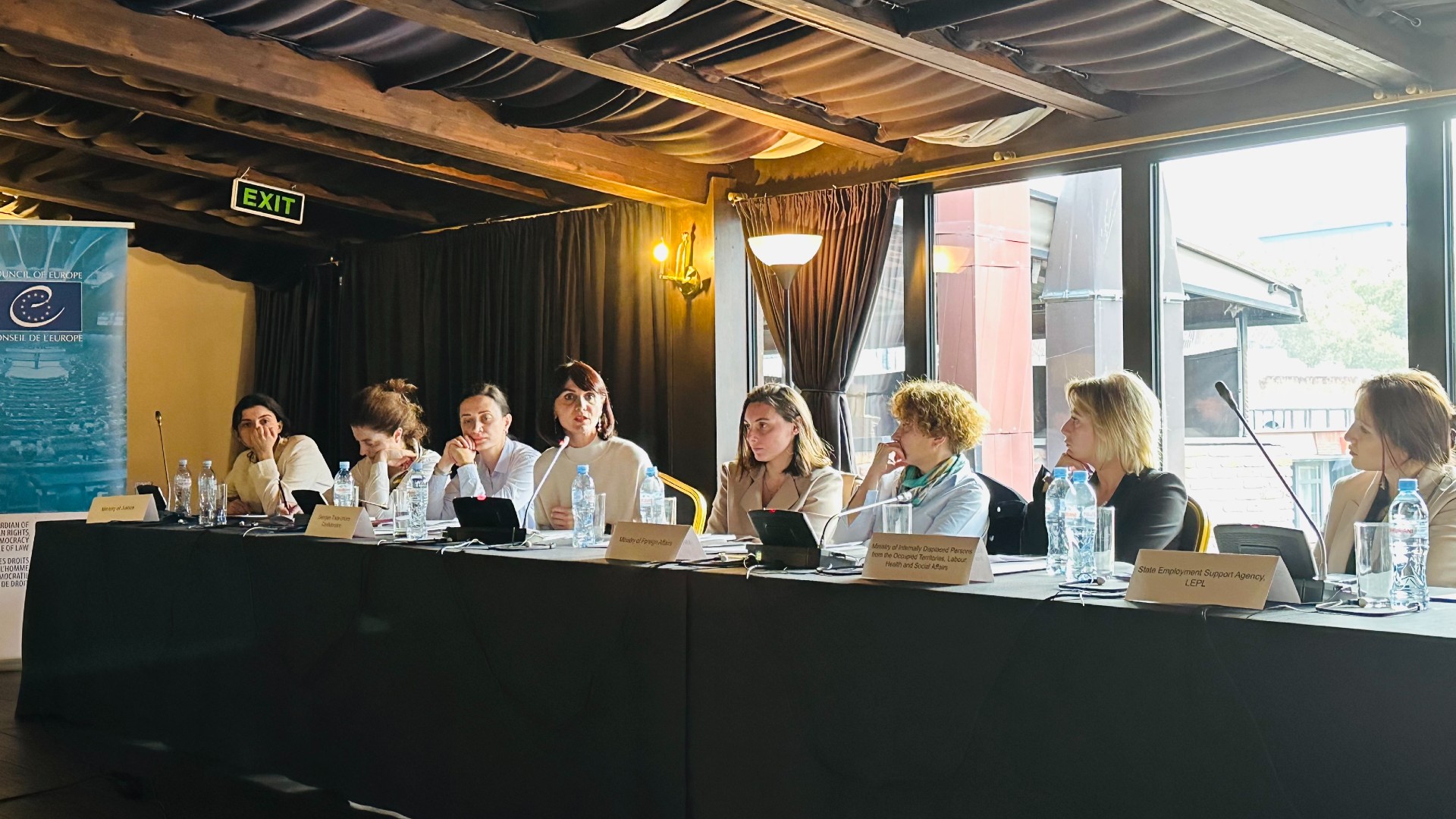In 2005, Georgia ratified 63 out of 98 paragraphs of the European Social Charter, showing commitment towards improving the well-being and living standards of its citizens. However, there are still 35 key provisions, such as safe working conditions and fair renumeration, awaiting ratification.
With an aim of bridging these gaps and enhancing social rights protection, the Council of Europe Project “Strengthening Protection of Social and Economic Rights in Georgia” organised a series of events on 26-27 October, in Tbilisi. The goal was to better align the Georgian legislation with the standards of the European Social Charter through discussing different provisions.
The events included a workshop on the accepted provisions, a roundtable on the unratified ones, and a session on collective complaints, focusing on human rights and social justice in Georgia. Participants from six Ministries, the Parliament, the Public Defender’s Office, and other relevant institutions participated alongside with keynote speakers: Tatiana Puiu, Vice President of the European Committee of Social Rights, Constantin Cojocariu from the Council of Europe's Department of Social Rights and a national consultant - Tornike Dvali.
After the events, Tamila Barkalaia, the Deputy Minister of the Internally Displaced Persons from the Occupied Territories, Labour Health and Social Affairs, noted the importance of the Council of Europe project in advancing social rights protection. "A series of support activities in relation to the European Social Charter will significantly help the state to identify where we are now and what we can do to get as close as possible to European standards in the direction of social rights protection.”
Raisa Liparteliani, Vice President of the Georgian Trade Unions Confederation, emphasized the European Social Charter's role in ensuring labour and social protection. “For its tangible benefits, it is of paramount importance, on the one hand, the practical implementation of the mandatory norms already recognised by Georgia and, on the other hand, the ratification of the non-accepted articles, including the collective complaints mechanism. The latter will allow the trade unions to effectively report and respond to all specific significant violations of the rights protected by the charter,”- she noted.
Tatiana Puiu appreciated Georgia’s progress while highlighting the need for further efforts to ratify the pending provisions. “I welcome the increased attention paid by Georgian authorities, institutions, NHRIs, and social partners to social rights and the European Social Charter system. We are seeing progress in Georgia, and this works is very valuable,” said Puiu.
The events marked a significant step towards strengthening social and economic rights in Georgia, showing the shared commitment to achieving the standards outlined in the European Social Charter. Continued collaboration and ratification of remaining provisions are essential to furthering this goal.
The events were organised within the framework of the Council of Europe Project “Strengthening Protection of Social and Economic Rights in Georgia.” The Project is part of the Council of Europe Action Plan for Georgia 2020-2023.






